Atrial Fibrillation Common Questions
The videos below are listed in order to best help you through your learning.
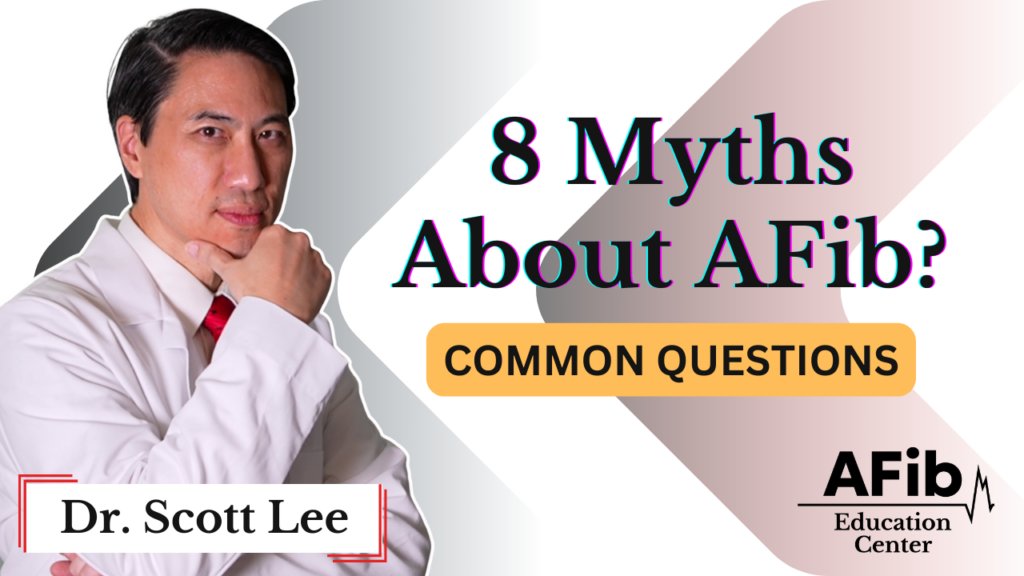
#1
In this video, Dr. Scott Lee debunks eight common myths and misconceptions about AFib, helping you understand this common heart rhythm problem better. Whether you or a loved one has been diagnosed with AFib, this video will provide you with valuable insights and clear up any misunderstandings.
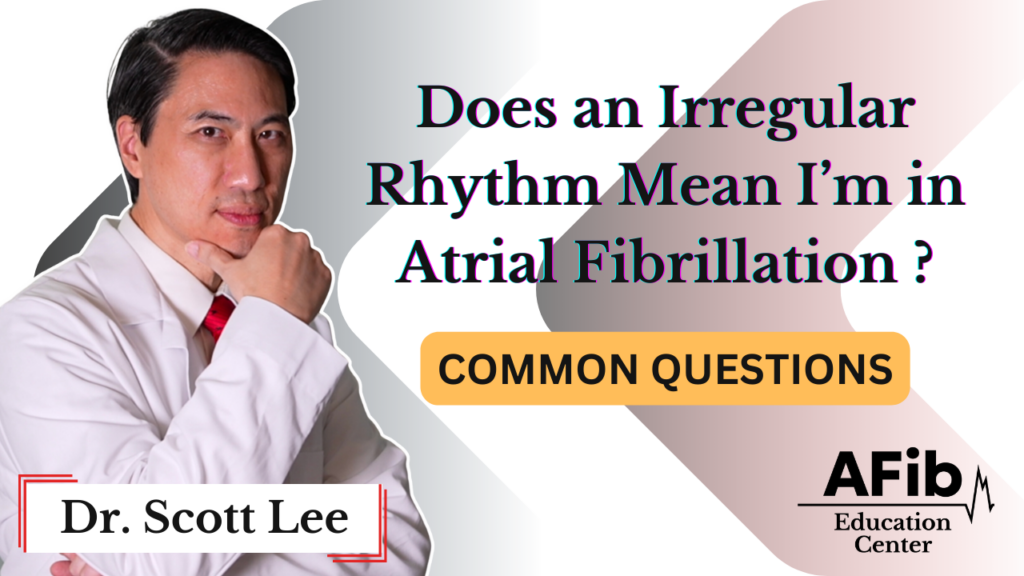
#2
In this video, Dr. Scott Lee explains the nuances of heart rhythms, specifically addressing whether an irregular heart rhythm necessarily indicates atrial fibrillation (AFib). Learn how to differentiate between normal heart rhythm variations and abnormal rhythms, including AFib and others, and understand the importance of accurate diagnosis through EKG or heart rhythm monitors.
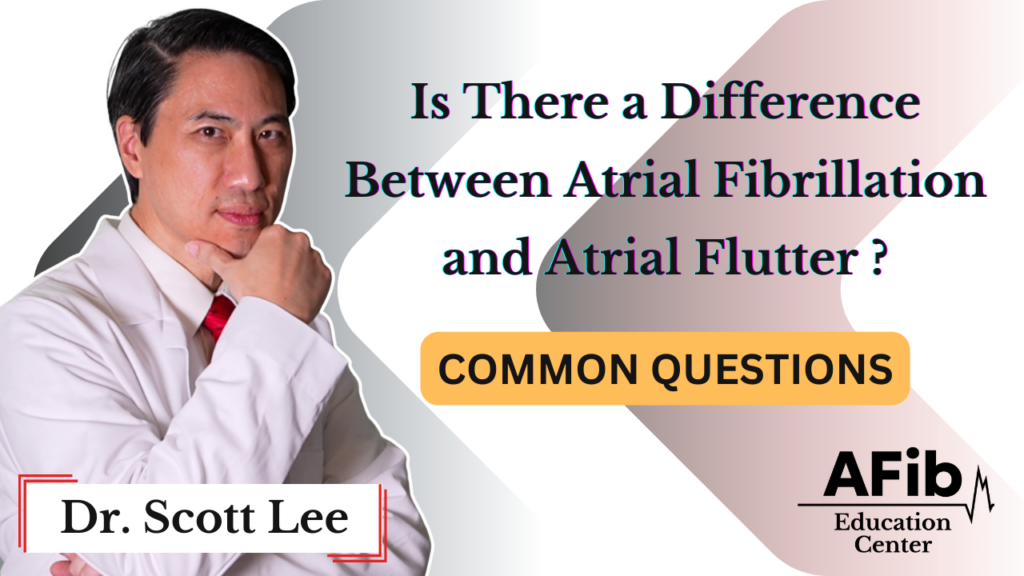
#3
In this video, Dr. Scott Lee demystifies the differences between atrial fibrillation (AFib) and atrial flutter, two commonly misunderstood heart rhythms. Despite their similarities, these conditions have distinct characteristics, origins, and treatments.
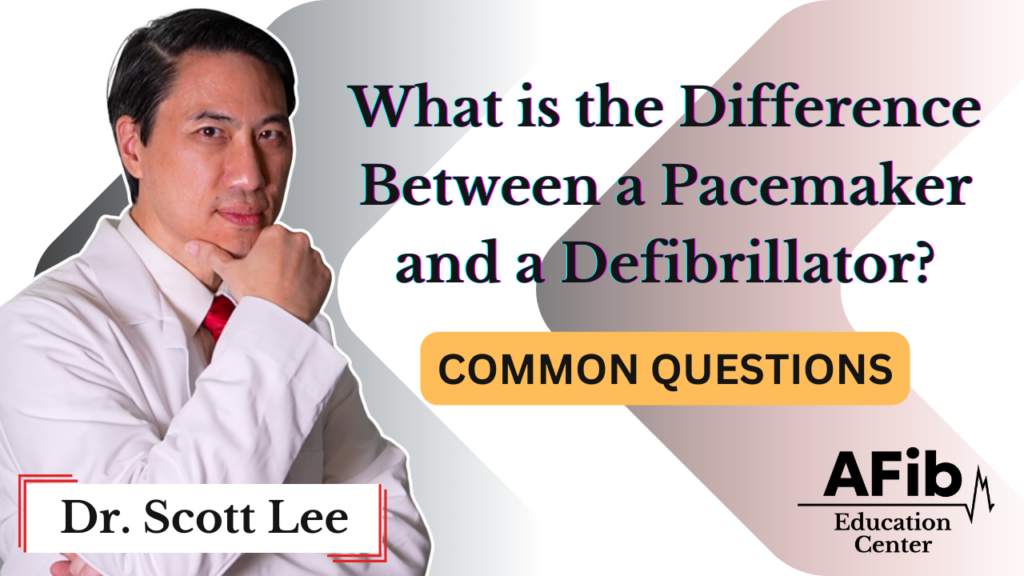
#4
In this video, Dr. Scott Lee explains the key differences between pacemakers and defibrillators, two critical devices used in managing heart conditions. Although they might seem similar, these devices serve very different functions in treating heart rhythms.
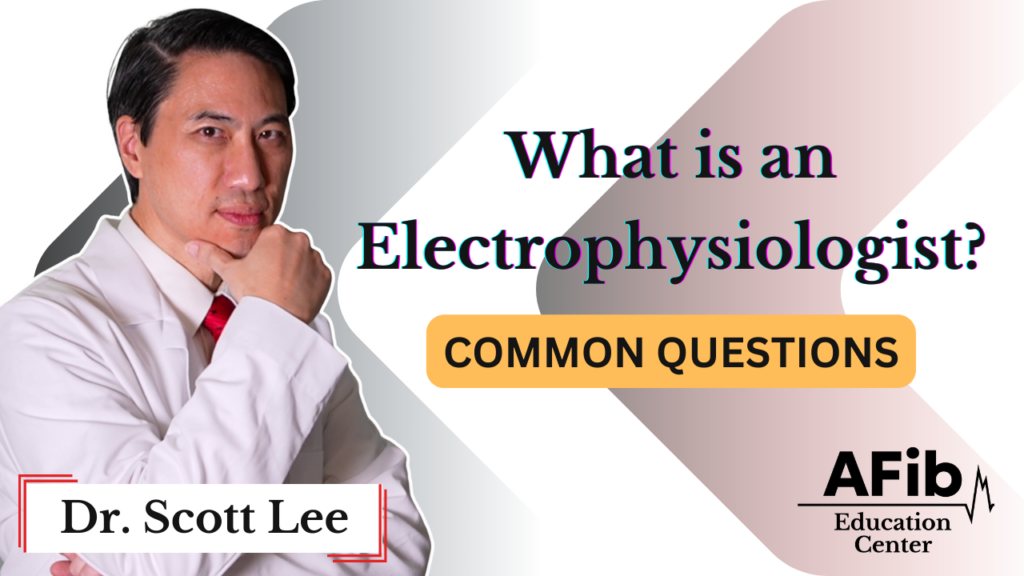
#5
In this video, we delve into the fascinating world of cardiac electrophysiology. What exactly is a cardiac electrophysiologist, or EP for short?
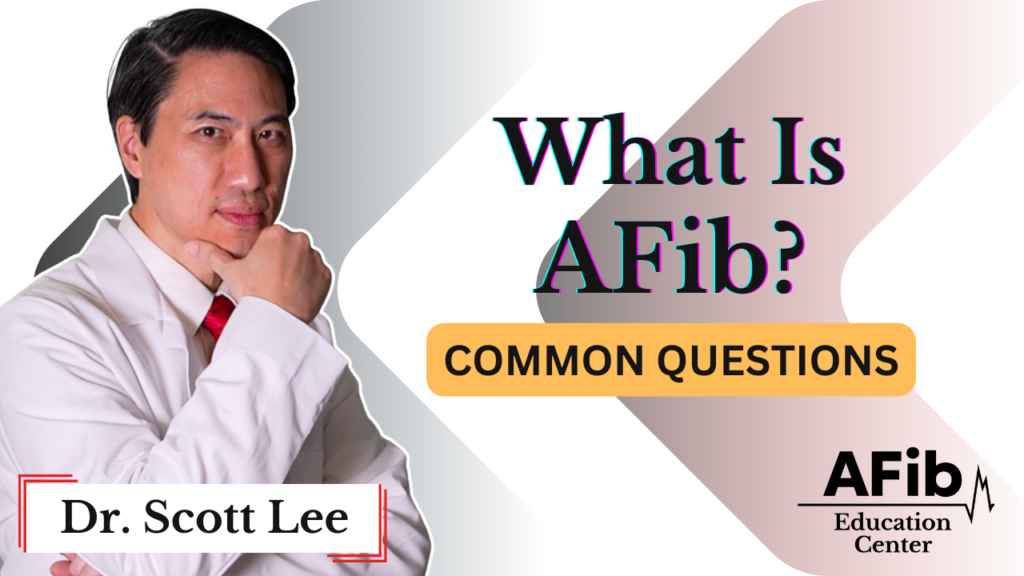
#6
In this video, we explain atrial fibrillation, a common type of abnormal heart rhythm, also known as an arrhythmia. Atrial fibrillation (AFib) can cause rapid heart rates and a range of symptoms, but with proper treatment, it is manageable. Key Points Covered:
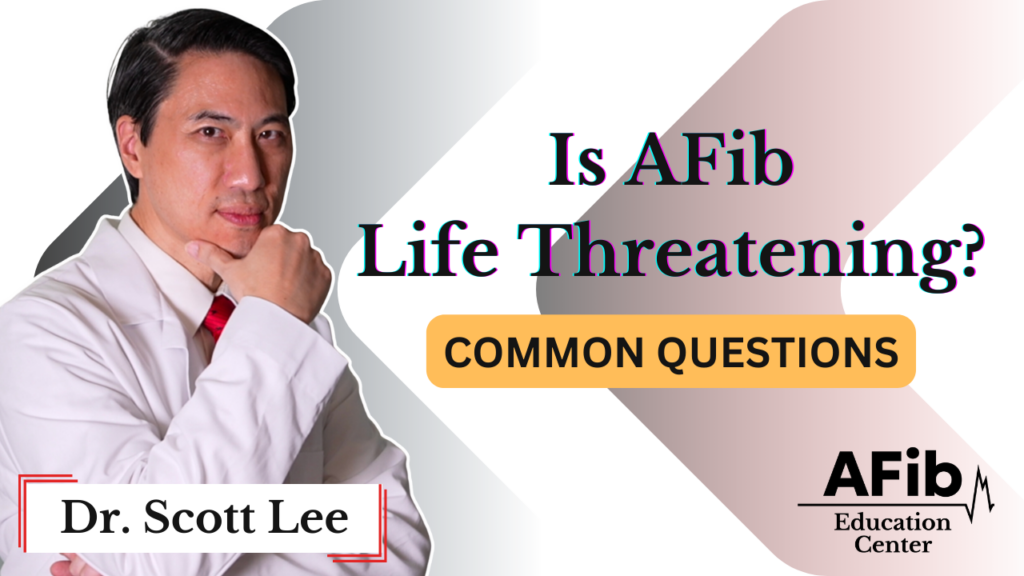
#7
In this video, we explore whether atrial fibrillation (AFib) is a life-threatening condition. With up to 15 different abnormal heart rhythms existing, AFib stands out as one that, while it can cause significant symptoms, is not directly dangerous just by speeding your heart up. Learn more about how AFib affects the heart and the associated risks.
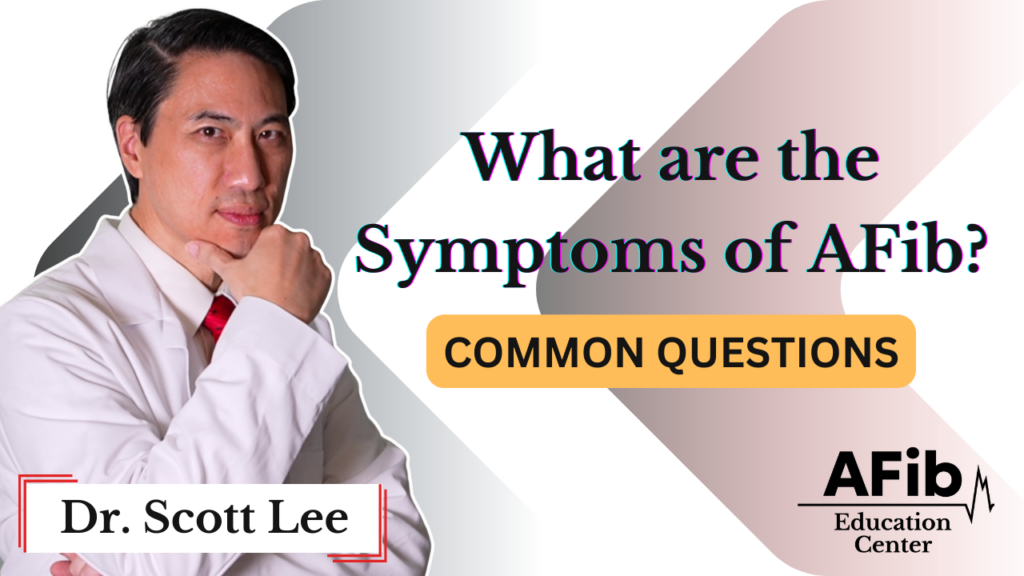
#8
In this video, we explain the symptoms of atrial fibrillation (AFib), an abnormal heart rhythm caused by an irregular source of electricity in the heart. Understanding these symptoms can help in recognizing and managing AFib effectively.
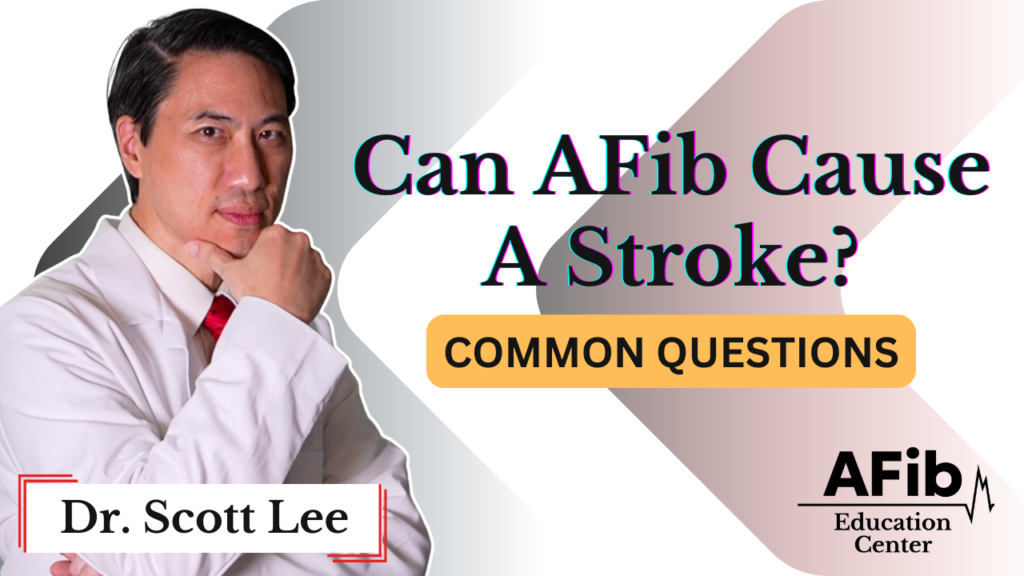
#9
In this video, we address the critical question: Can atrial fibrillation (AFib) cause a stroke? Unfortunately, the answer is yes. Learn about the risks associated with AFib, how it can lead to strokes, and what can be done to mitigate these dangers.
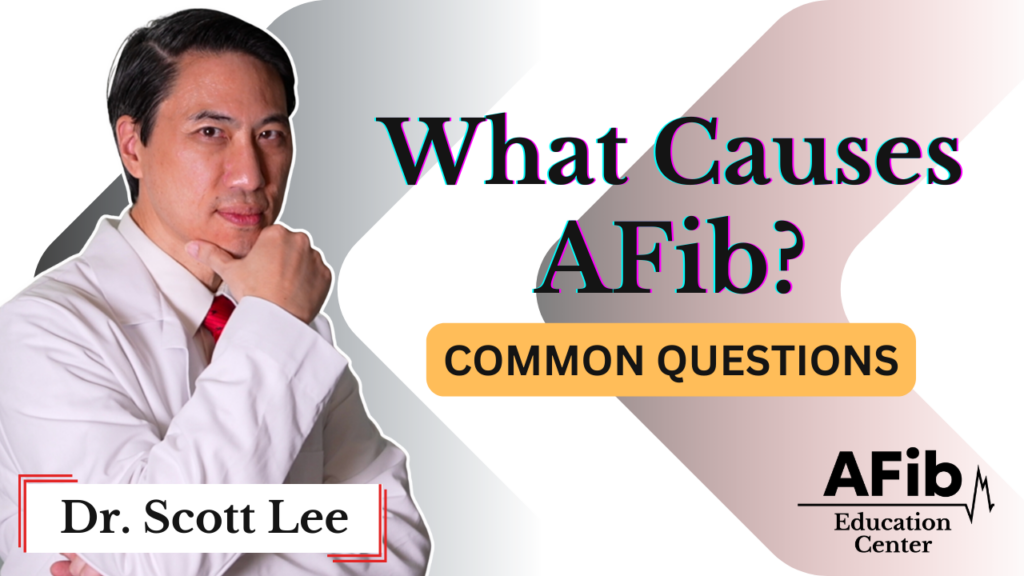
#10
In this video, we explore the various causes of atrial fibrillation (AFib), focusing on both unavoidable factors like aging and modifiable lifestyle factors. Understanding these causes can help in managing and potentially reducing the risk of developing AFib.
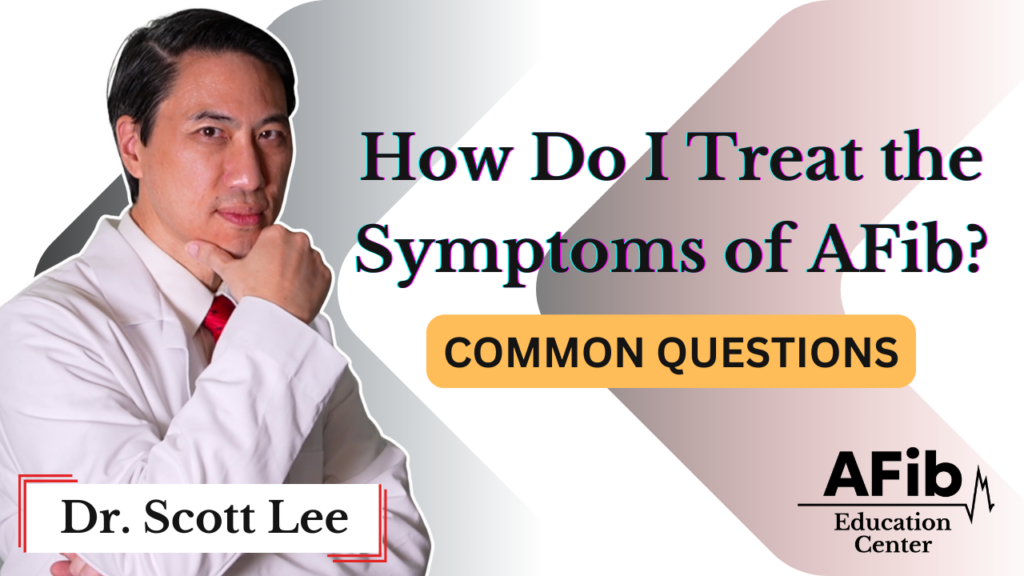
#11
In this video, we explore various ways to treat the symptoms of atrial fibrillation (AFib), focusing on managing rapid heart rates and improving quality of life. Learn about the different treatment options, their benefits, and potential risks.

#12
In this video, we explore whether a pacemaker can be used to treat atrial fibrillation (AFib). Understand the role of pacemakers, how they work, and their effectiveness in managing AFib symptoms. Discover the scenarios where a pacemaker might be beneficial and why it may not be the first line of treatment for AFib.
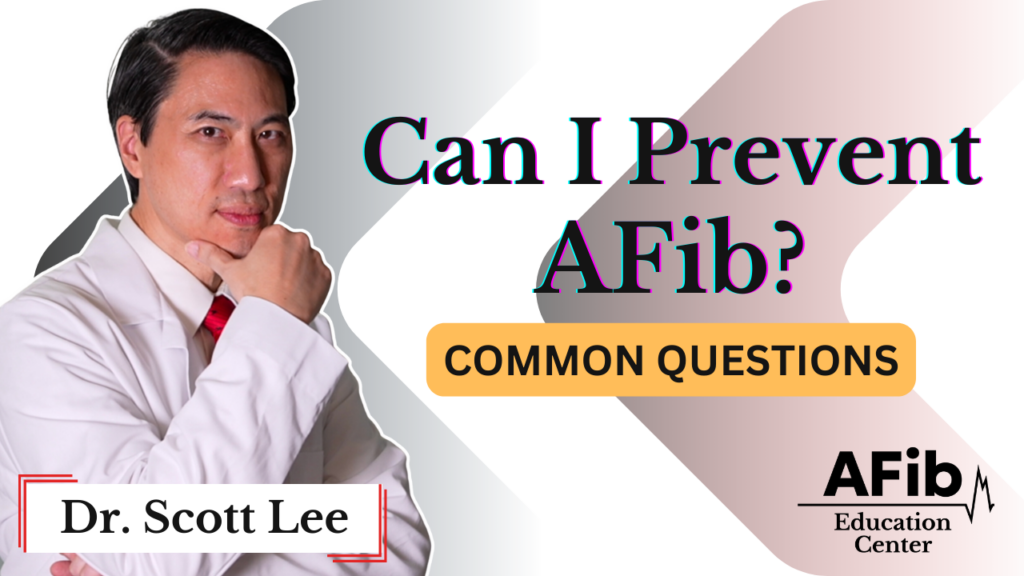
#13
In this video, we explore the possibility of preventing atrial fibrillation (AFib) and discuss the factors that contribute to its development. Learn about the nature of AFib, its risk factors, and practical steps you can take to delay its onset and manage its progression.
